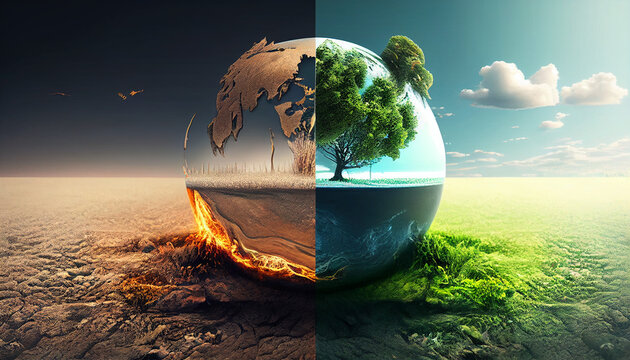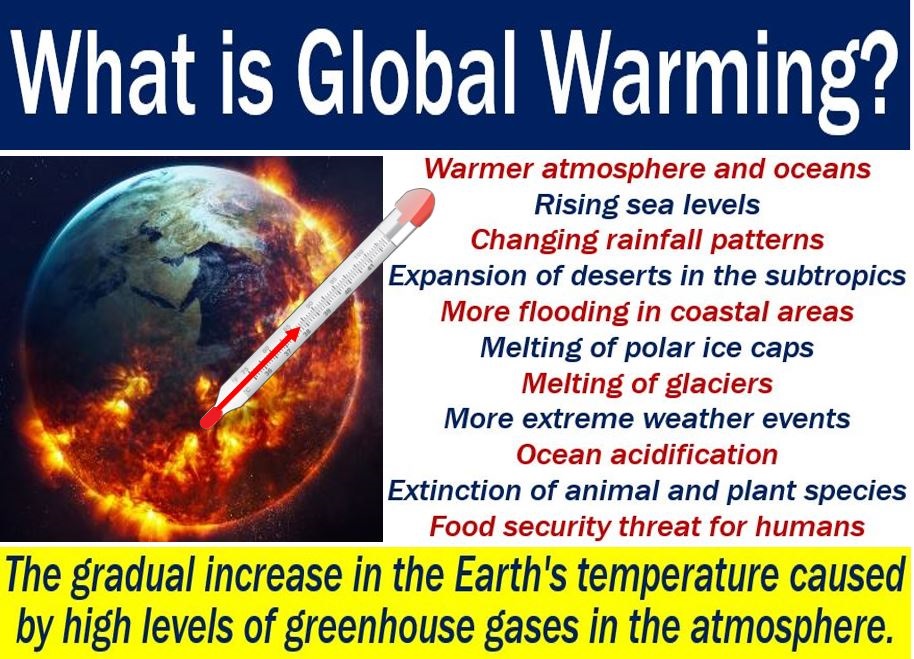GLOBAL WARMING
GLOBAL WARMING
Global warming refers to the long-term increase in Earth's average surface temperature due to human activities, primarily the emission of greenhouse gases such as carbon dioxide (CO2), methane (CH4), and nitrous oxide (N2O).
These gases trap heat in the Earth's atmosphere, leading to a warming effect commonly known as the greenhouse effect.
Several human activities contribute to the rise in greenhouse gas emissions. The burning of fossil fuels, such as coal, oil, and natural gas, for energy production is a major contributor. Deforestation also plays a significant role, as trees act as carbon sinks, absorbing CO2 from the atmosphere. When trees are cut down or burned, this stored carbon is released back into the atmosphere.
The consequences of global warming are far-reaching and impact various aspects of the environment and ecosystems. Some of the key effects include:
- Rising temperatures: Average global temperatures have been steadily increasing, leading to more frequent and severe heatwaves. This can have detrimental effects on ecosystems, agriculture, and human health.
- Melting ice and rising sea levels: The warming climate contributes to the melting of glaciers and ice caps, as well as the thermal expansion of seawater. This results in rising sea levels, which can lead to coastal erosion, flooding, and the displacement of communities.
- Extreme weather events: Global warming is linked to an increase in the frequency and intensity of extreme weather events, such as hurricanes, droughts, floods, and wildfires. These events can have devastating impacts on communities, ecosystems, and economies.
- Ocean acidification: The absorption of excess CO2 by the world's oceans leads to ocean acidification. This poses a threat to marine life, especially organisms with calcium carbonate shells or skeletons, such as corals and shellfish.
- Impacts on biodiversity: Changes in temperature and precipitation patterns can disrupt ecosystems and alter the distribution of plant and animal species. Some species may struggle to adapt or migrate, leading to shifts in biodiversity and potential extinctions.

Addressing global warming requires concerted efforts on a global scale. This includes reducing greenhouse gas emissions through transitioning to renewable energy sources, enhancing energy efficiency, protecting and restoring forests, and implementing sustainable land-use practices. International cooperation and agreements, such as the Paris Agreement, aim to unite countries in their efforts to mitigate climate change and adapt to its impacts. Individuals can also contribute by adopting sustainable practices in their daily lives, such as reducing energy consumption, supporting renewable energy, and promoting conservation efforts.





























